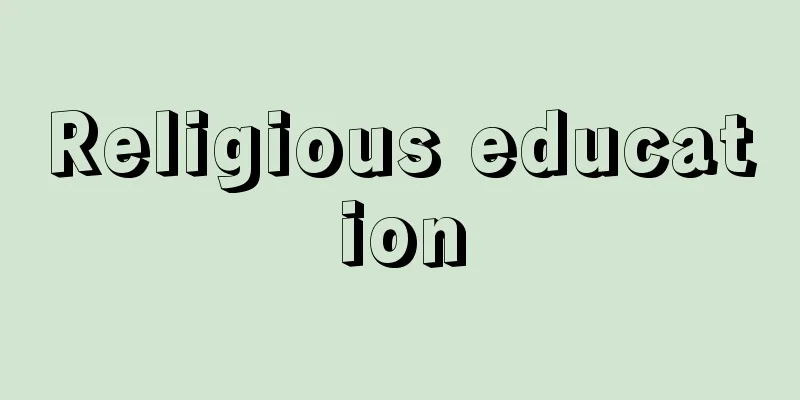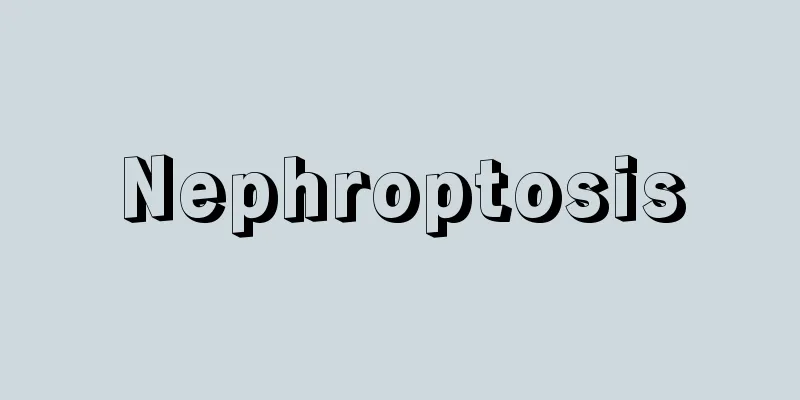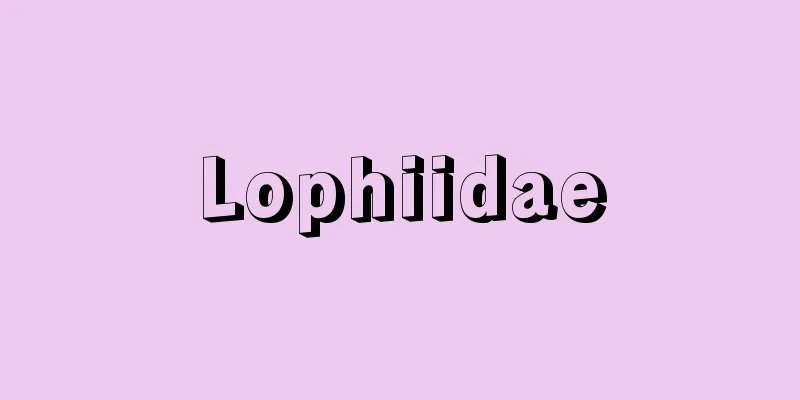Religious education

|
Education that aims to enhance religious piety and religious sentiment in people by enriching knowledge and deepening understanding of religion. Unlike external requirements such as law, religion works on the inner self of the individual and thereby provides the basis for personal maturity and cultural development, which are also the fundamental goals of education. In this sense, religion is closely related to the goals of education. Therefore, it is naturally required that religious matters be incorporated into the content of education. In doing so, however, it is necessary to treat historical and general knowledge about religion fairly across religions. This is also a prerequisite for correcting prejudice and misunderstandings about religion and cultivating correct religious sentiment. In particular, consideration must be given to religious tolerance, which leads to respect for each individual's worldview and personality. Generally, people have an extremely intolerant attitude toward religious issues, and historically religion has been the cause of persecution and war. Tolerance of the beliefs of others means being convinced of the truth of one's own position while respecting the position and personality of others, and at the same time being aware of the ethical relationship between human beings, showing sympathy and consideration. This awareness is not only a matter of religious education, but also a matter of morality in a broad sense, and in this sense religious education is considered to be the foundation of moral education. [Tashiro Naohiro] JapanIn Japan, Article 9 of the current Fundamental Law of Education preaches an attitude of tolerance regarding religion and respect for its status in social life, but stipulates that religious education in national and public schools must be kept neutral, and that sectarian education for specific sects must be prohibited in national and public schools. Freedom of religious education is reserved in private schools. The position of the Fundamental Law of Education is to embody in the educational setting the guarantee of "freedom of thought and conscience" in Article 19 of the Constitution and "freedom of religion" in Article 20. "Freedom of conscience" is ultimately a requirement that concerns the inner self of the individual, and external coercion is not permitted. In that sense, "freedom of conscience" can be said to be a concept that corresponds to "freedom of religion." Violators of "freedom of religion" include the state, other organizations, and individuals. In particular, the state cannot and should not make value judgments about religious beliefs. The state must guarantee the freedom of its citizens to choose the religion of their choice, and to this extent, religious neutrality and neutrality in the education it provides are required of the state. Historically, the Ministry of Education's Instruction No. 12 of August 3, 1899 (Meiji 32) prohibited religious education in public schools or private schools based on the Elementary School Act or Middle School Act. However, since Shinto was systematically excluded from religion, Shinto was in effect made the state religion and was integrated into education. As the nationalist system was strengthened, the Ministry of Education issued a directive in 1935 (Showa 10) to "cultivate religious sentiment" in schools, due to the need to promote spiritualism and morality, and encouraged general religious sentiment education in schools that was not biased toward any particular sect. After World War II, Shinto lost its status as a state religion and was completely eliminated from education, and the individual's "freedom of religion" and the state's religious neutrality were established in the Constitution. [Tashiro Naohiro] foreign countryIn other countries, the relationship between public education and religion can be roughly divided into three types: (1) France, where no religious education is offered in public schools; (2) Germany and the UK, where religious education and denominational religious education are offered in public schools; and (3) the US, where general religious subjects are set up and only general religious education is offered. [Tashiro Naohiro] "School Education and Religion" by Masutoku Hiratsuka (1951, Meguro Shoten) "The Theory of the Fundamental Law of Education" by Kotaro Tanaka (1961, Yuhikaku) [References] | | |Source: Shogakukan Encyclopedia Nipponica About Encyclopedia Nipponica Information | Legend |
|
宗教に関する知識を豊かにし、宗教の理解を深めることによって、人間の宗教的敬虔(けいけん)と宗教的情操を高めることを目ざす教育。 宗教は法のような外部的要請とは異なり、個人の内面に働きかけることによって、教育の基本的目標でもある人格的成熟と文化的発展の基礎を提供する。この意味で、宗教は教育の目標と密接な関連をもっている。したがって宗教的事項の教育内容への組み込みが、当然のこととして要求される。しかしその際、宗教に関する歴史的・一般的知識を諸宗教に対して公平に取り扱うことが必要である。これは、宗教に対する偏見と誤解を是正し、正しい宗教的情操を育成する前提でもある。とりわけ宗教的寛容については、配慮がなされなければならない。宗教的寛容は、各人の世界観的立場や人格の尊重に通じる。 一般に人は宗教の問題にきわめて不寛容な態度をとり、歴史的にも宗教が迫害や戦争の原因ともなってきた。他者の信仰に寛容であるということは、自己の立場の真理を確信しつつ、他者の立場と人格を尊重し、同時に、同情や思いやりを示すという、人間同士の倫理的関係を自覚することでもある。この自覚は宗教教育だけでなく、広く道徳の問題でもあるが、この意味で宗教教育が道徳教育の基礎でもあると考えられている。 [田代尚弘] 日本わが国における宗教教育は、現行の教育基本法第9条において、宗教に関する寛容の態度と、社会生活における地位の尊重とが説かれているが、国公立学校における宗教教育の中立性の保持、あるいは特定宗派のための国公立学校における宗派教育の禁止が定められている。私立学校においては宗教教育の自由が留保されている。教育基本法の立場は、憲法第19条の「思想及び良心の自由」、第20条の「信教の自由」の保障を教育の場で具現化しようとするものである。 「良心の自由」は究極的に個人の内面にかかわる要件であり、外部からの強制を加えることは許されない。その意味で「良心の自由」は「信仰の自由」に該当する観念ということもできる。「信仰の自由」の侵害者とは、国家その他の団体、個人を問わない。とくに国家は、宗教的信仰について価値判断を下すことはできないし、また判断を下してもいけない。国家は、国民の好む宗教を選択する自由を保障しなければならず、この限りで国家による宗教的中立性とその教育の中立性が要請されるのである。 歴史的には、1899年(明治32)8月3日文部省訓令第12号において、公立学校、あるいは小学校令や中学校令に基づく私立学校での宗教教育は禁止された。だが神道(しんとう)は制度的に宗教から除外されていたので、実質的には神道が国教とされ、教育と結合された。やがて国家主義体制の強化のなかで、精神主義と道義の高揚の必要から、文部省は1935年(昭和10)に学校における「宗教的情操の涵養(かんよう)」の指令を発し、学校での特定宗派に偏しない一般的・宗教的情操教育を奨励した。第二次世界大戦後は、神道は国教的性格を失い、教育から完全に払拭(ふっしょく)され、個人の「信仰の自由」と国家による宗教的中立性が憲法上確定された。 [田代尚弘] 外国諸外国においても公教育と宗教のかかわり方は、ほぼ次のように分かれる。(1)フランスのように公立学校で宗教教育を行わない型、(2)ドイツやイギリスのように公立学校で宗教教育、宗派別宗教教育を行うもの、(3)アメリカのように一般的宗教科目を設けて、一般的宗教教育だけを行うもの、の3類型である。 [田代尚弘] 『平塚益徳著『学校教育と宗教』(1951・目黒書店)』▽『田中耕太郎著『教育基本法の理論』(1961・有斐閣)』 [参照項目] | | |出典 小学館 日本大百科全書(ニッポニカ)日本大百科全書(ニッポニカ)について 情報 | 凡例 |
>>: Work regulations - work regulations
Recommend
Volga [river] - Volga
A large river in Russia. It originates in the Vald...
Carbonic anhydrase
Carbonic anhydrase is present in red blood cells o...
Calcium oxide - sankakarushiumu (English spelling) calcium oxide
A compound of calcium and oxygen. It is also call...
Frigate - Frigate (English spelling)
A general-purpose surface combat vessel that is g...
Diptera - Small insects
This refers to the order Diptera, one of the larg...
l'art pour l'art (English: l'art pour l'art)
...In other words, this concept originated in the...
Undersea hot spring - Kaitei onsen
… (b) Hot springs in plate production areas Mid-A...
Inba prefecture
…On the other hand, the governors of Awa-Kazusa a...
Endzelins, J.
...The national writer Rainis and the folk music ...
Archegonia - Zoranki
It is an organ that forms female gametes (also ca...
limestone cave
…In limestone regions with well-developed undergr...
MIMASU Co., Ltd.
Official company name: "MIMASU Co., Ltd."...
Surrounding net fishery
This is a fishing method that uses a purse seine n...
Mizokuchi [town] - Mizokuchi
A former town in Hino District, western Tottori Pr...
Architectonica maxima (English spelling) Architectonicamaxima
…[Tadashige Nabe]. . … *Some of the terminology t...









